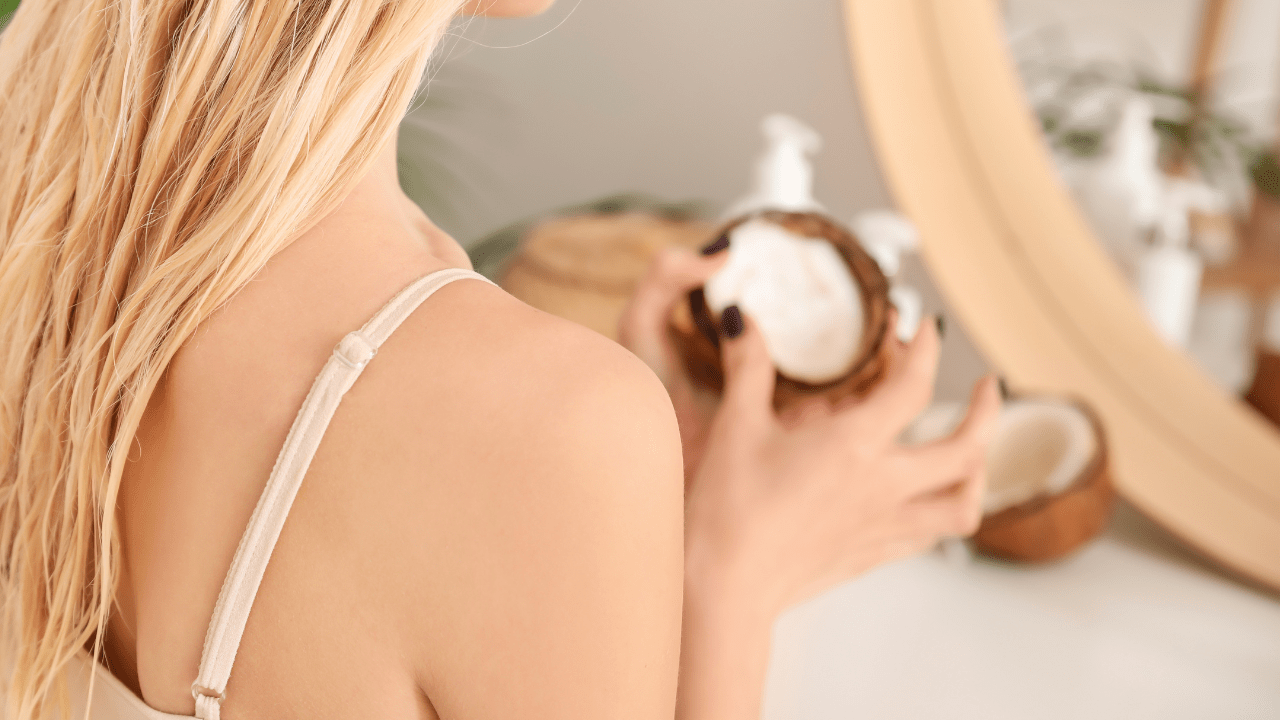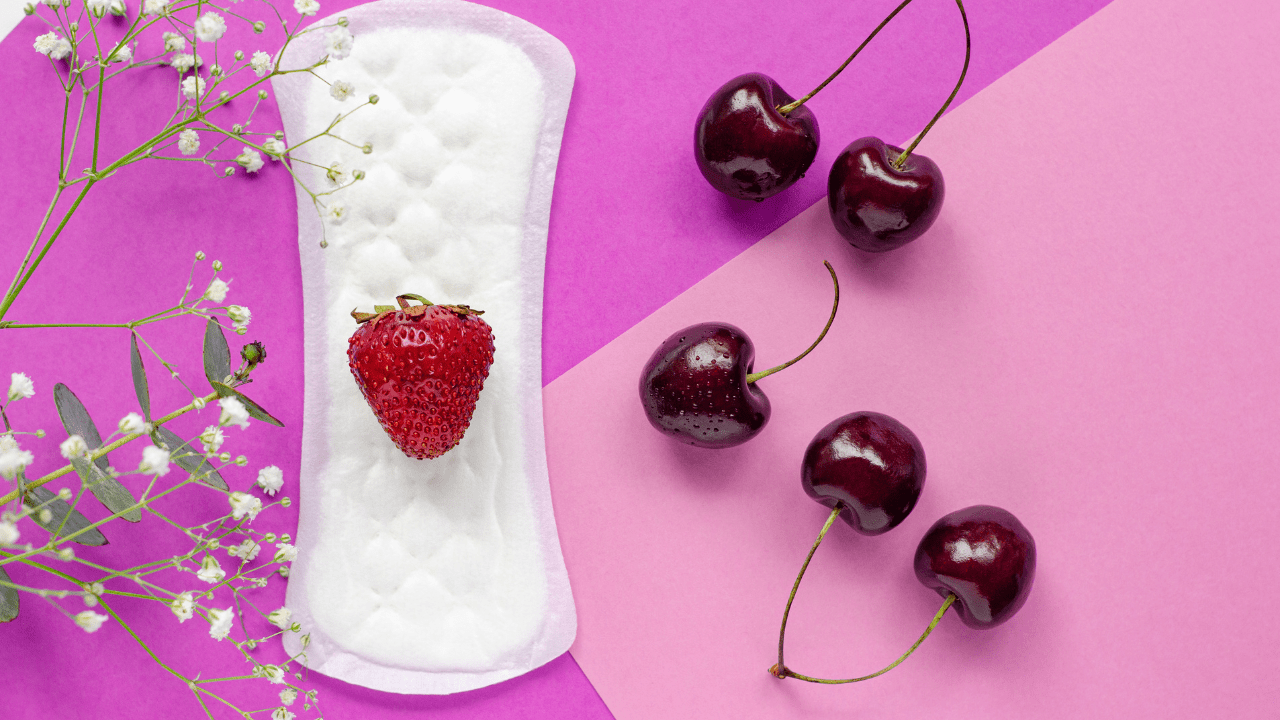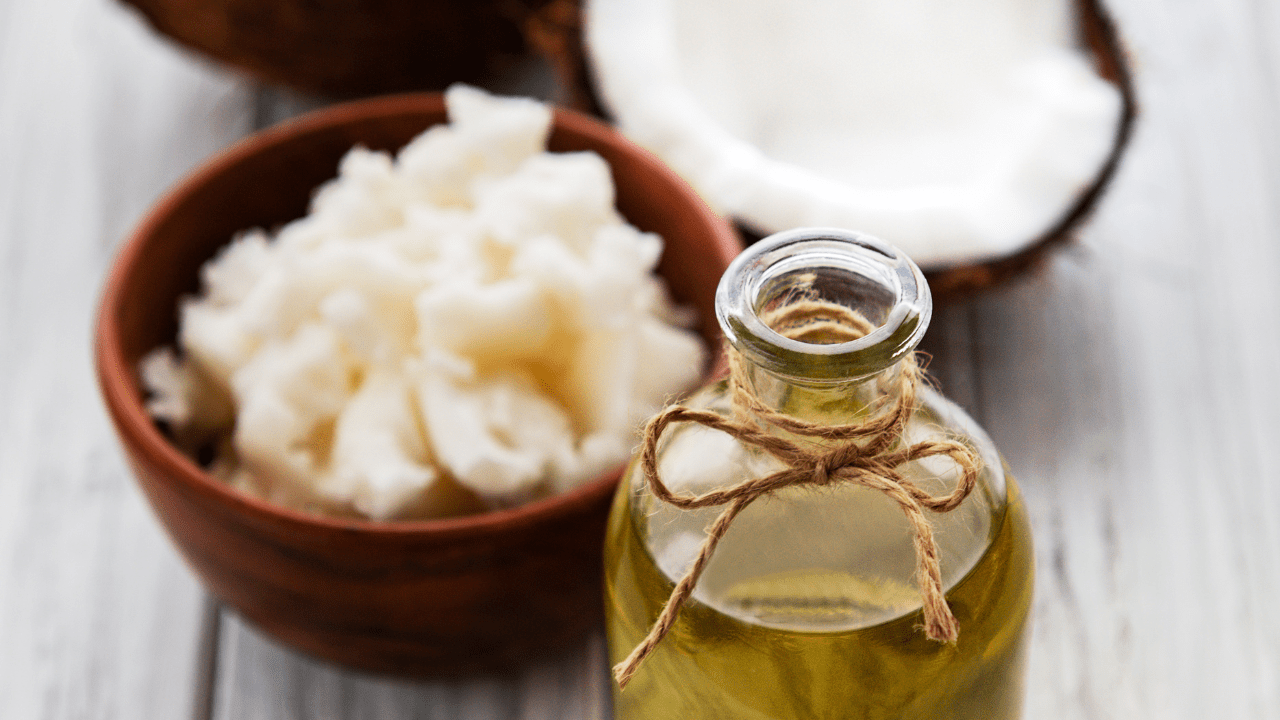Coconut is for your piña coladas and not for your vagina!
Vaginal dryness is a huge issue for women. 85% of women experience it. We’re always looking for a good and natural way to relieve this dryness. Women are turning to coconut oil because it’s raved all about for moisturization. However, coconut oil is not the answer, and I’m gonna talk about why.

The problem here is that coconut oil changes the pH balance of your vagina. The optimal labial, which is the external vaginal tissue, pH range is 4.5 to 5.5 is higher than the optimal vaginal pH. The reason is that our labial skin, like the rest of the skin on our bodies, has a protective acid mantle that provides a barrier against the wrong bacteria and subsequent infection.
Studies show that a pH of the skin, including labial skin that is under five, keeps the existing good bacteria flora attached to the skin. And once the pH of your skin rises, these good bacteria detach and that’s a problem.
So knowing that we want our labial skin and vulva to be slightly more acidic than our skin and more basic that the inside of our vagina, what are things to know that can cause an imbalance in bacteria and acidity?
Firstly, you have bacteria in the vagina called lactobacillus that helps keep the vaginal environment acidic. This helps balance the good bacteria and reduce the bad bacteria, such as e coli that can cause infections such as bacterial vaginosis. When the vaginal pH is unbalanced, then this allows bad bacteria, yeast, or fungus to flourish.

Secondly, be aware of what changes pH of the vagina and external genitalia. So what can change your pH?
First of all, semen. Semen is actually basic. So after sex, the pH of your vagina naturally increases and becomes more basic.
Second, menstrual blood during your period. The pH of the vagina is also less acidic.
Third, hormone decline after pregnancy or after menopause. Hormonal decreases contribute to different bacterial growth. Lactobacillus starts to die off if estrogen is not present, and the result is the vagina becomes more basic.
Fourth, soaps in douching. Soap is alkaline or basic, unless specially formulated and douching removes the healthy bacteria in the vaginal tract. Using a pH balanced, intimate cleanser is the optimal way to clean your genital region.
Fifth, lubricants and vaginal moisturizers. It’s really super important to use the right lubricant for your needs. If you’re trying to get pregnant, you’ll want to use a lubricant that has a higher pH. Example, seven or eight pH. Acidity is not conducive to alkaline sperm, so using an acid lubricant can be a barrier to pregnancy.
Conversely, if you’re 40 plus and in perimenopause or menopausal, you’ll need a lubricant or moisturizer that has a low pH between 3.5 and 4.5 for your vagina, and between 4.5 and 5.5 for the labia. It’s why we formulated Mae and Cleo by Damiva for your optimal pH.

Lastly, back to coconut oil. If you’re using coconut oil as a lubricant or moisturizer, keep in mind that coconut oil has a high pH of seven or eight. It feels great on the skin, but it’s not a long term solution for the genital tract and can erode that protective acid mantle over the long term.
So what can you do? Don’t use coconut oil instead, opt for a hundred percent all natural and chemical free products that are pH balanced perfectly for your labia and vagina.







